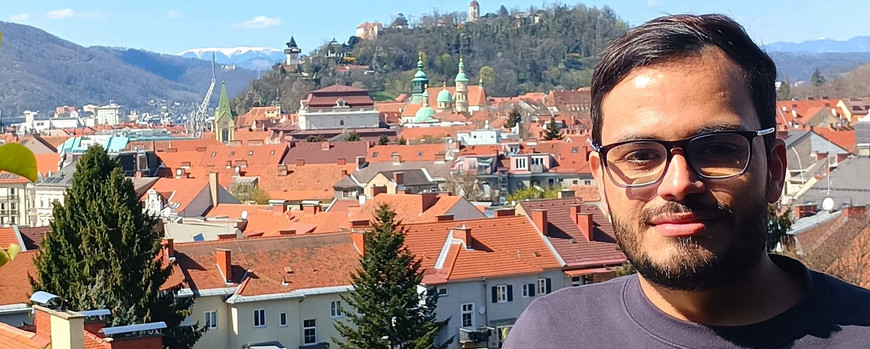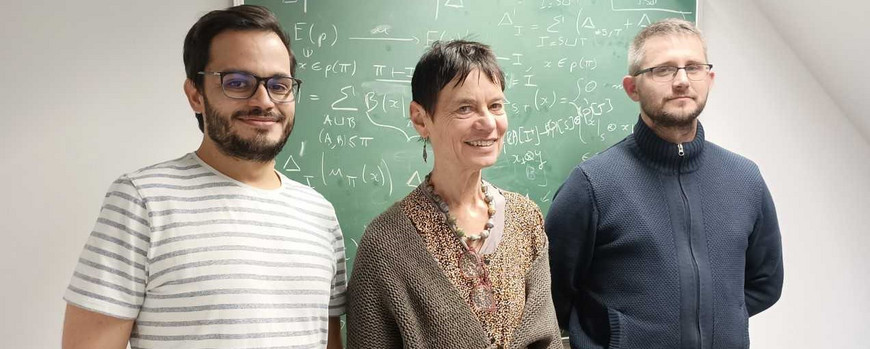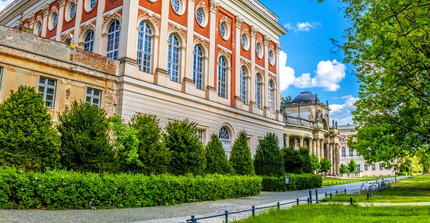Dr. Yannic Vargas Lozada
UP Reconnect Guest: Dr. Yannic Vargas Lozada
Visiting from: Austria
Home Institution: TU Graz
Host at the UP: Prof. Dr. Sylvie Paycha
Institute at the University of Potsdam: Institute of Mathematics
Time of the visit: October – November 2023
Yannic Vargas studied Mathematics in Venezuela and Canada. After his PhD at the University of Quebec he did a postdoctoral position at the University of Potsdam and works now as a postdoctoral fellow at Graz University of Technology, in Austria. In this interview he talks about his fascination of the language mathematics and his interest in developing learning communities for students.
Dear Yannic, you came to us at the University of Potsdam (UP) from Austria. How did the connection to Potsdam come about?
I did a postdoctoral position at the Institute of Mathematics of the University of Potsdam in 2021. My mentor at UP was Sylvie Paycha, with whom I worked during that time and continue to collaborate with now.
You studied in Canada and Venezuela, visited different universities as a guest researcher and you are now working in Austria. Have you been able to identify any differences in research?
There can certainly be significant differences in research in science, depending on the country, the university, and the level of funding for the projects you are involved in. Fortunately, in mathematics, research often requires just some sheets of paper, pens, and motivated and inspiring collaborators. I have been fortunate to have access to all of these resources!
What fascinates you about your research field?
Mathematics is known as a universal language for understanding models. However, within mathematics, you can find sublanguages depending on the community you are in: the language of geometry, physics, algebra, etc. Recently, I have been fascinated by how different communities within mathematics, each speaking their own language, are looking for solutions to the same problems! The challenge then is to facilitate a language transition between these communities and to advance the research further.
During your stay at the UP you are working closely with other researchers. How does the exchange work within the group and what are the advantages for you being here for the project?
My collaborators come from the field of mathematical physics, while I come from algebraic combinatorics. Working with them has led me to learn new and fascinating concepts that I could hardly have learned on my own. The exchange within the group is highly collaborative, with frequent discussions and shared insights that enrich our collective understanding and drive the project forward.
You mentioned your interest in developing learning communities that reinforce students’ self-identity as scientists, especially in Latin America. Can you tell us more about it?
I have been cooperating with several programs that help students in Latin America learn new topics outside their undergraduate programs and provide them with a glimpse into what it means to conduct research. For example, I am involved in the program "Pares Ordenados" (https://ninyam.github.io/paresordenados/) and during 2018 in the Encuentro Colombiano de Combinatoria (https://ecco2024.combinatoria.co/inicio-espa%C3%B1ol). These initiatives aim to inspire and support students by connecting them with mentors and research opportunities.
Do you have any highlights of your time at the UP and what advice would you give to other international researchers who are considering a short-term visit to the UP?
One highlight of my time at the University of Potsdam has been the opportunity provided by Reconnect UP to conduct research in person. This mode of interaction proved to be more productive than virtual meetings, leading to new ideas for a couple of research papers. For international researchers considering a short-term visit, I recommend organizing their time efficiently and creating a short-term plan to fully leverage the visit and interactions with collaborators.
Thank you for this interesting interview and we wish you all the best for the future!



